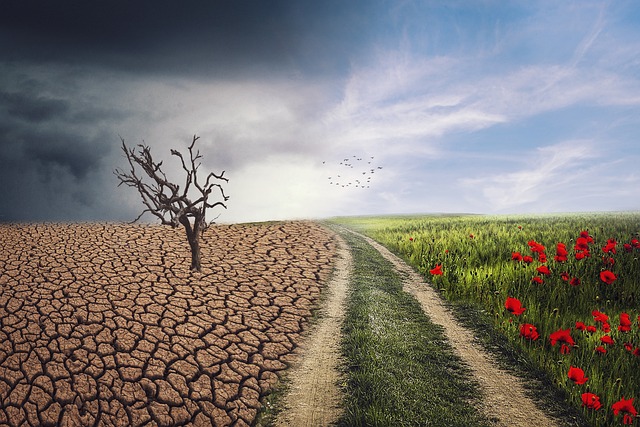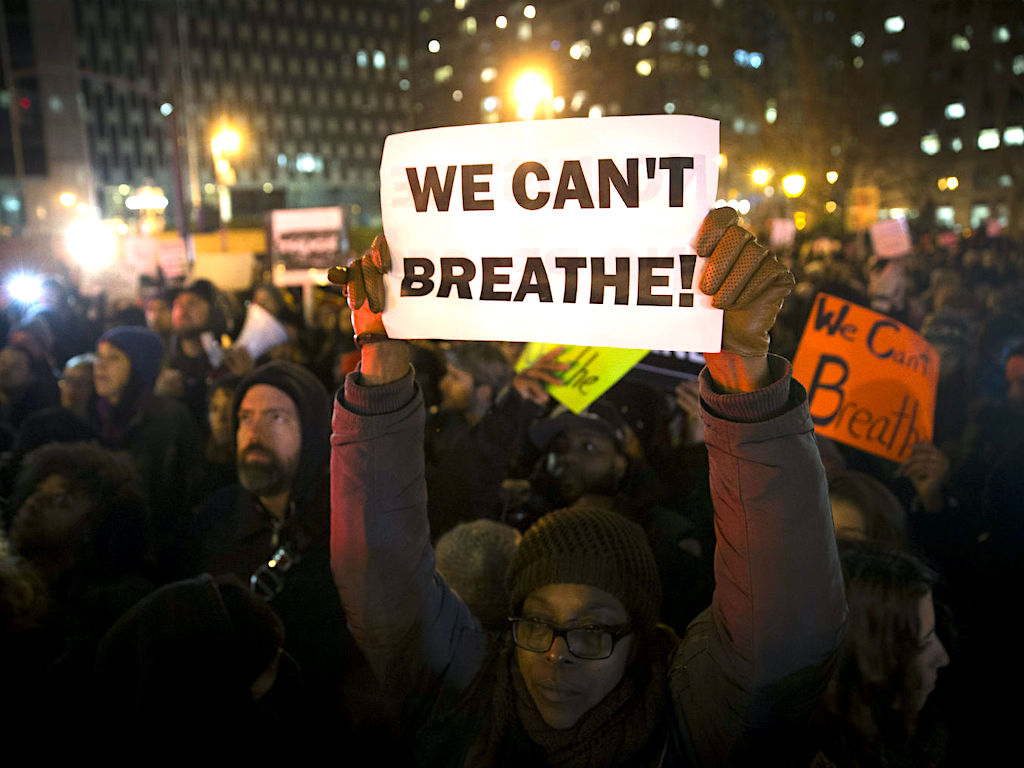
Open-response surveys are a great way to get a sense of how children view climate change. To measure children's interest in science, these surveys employ a variety of methods including focus groups and interviews. These surveys have had remarkable consistency over the past ten years.
Surveys have shown that people who care about climate issues are more likely to see negative impacts from climate change, believe that the effects of climate change are more likely to be mitigated, and have a more optimistic view of how climate scientists work. They also are more likely to believe that proposed solutions to climate change will be effective.

There are three main types of scepticism: one related to whether the climate is changing; another to whether it is caused by human activity; and a third to how 'bad' the climate may be. Some questions asked about climate change and others demanded proof. Surveys often asked participants about climate change and their actions.
These questions show children's diverse views on climate change. Children frequently use science-fiction themes as well as speculative language when responding to these questions. Although it is clear that some people have an understanding of climate change, this also means that others may be creating incorrect theories.
When asked about the worst thing that could happen to climate change, participants often linked the future consequences to events seen in movies or video games. Participants were unable to connect the future effects of climate change with those of non-human-caused and human-caused climate changes. This indicates that participants are developing inaccurate theories about climate changes, and that these ideas could continue to exist indefinitely if they are not addressed.
Others used scientific terminology and more speculation to describe future climate change impacts. Participants were asked to imagine the effects of climate change in the far future and to consider the possible impacts on animals and humans.

This category included questions about the geographic location of climate-related impacts and the timing and magnitude of those changes. One question asked participants to calculate the impact of climate changes on the United Kingdom. Another asked about how climate change will affect the food and agricultural industries.
The nature of climate change was the most frequent type of questions about climate change. In this category, respondents were asked to answer questions about the causes of climate change, the current state of the world's climate, and the effects of climate change on human health. The majority of the questions were general and broad, with a few exceptions that addressed individual actions that ordinary citizens could take.
FAQ
What is the impact of climate change on oceans and marine life around the world?
What is the effect of climate change upon the world's oceans?
Since its inception, climate changes have had significant impacts on the oceans of the world and the marine life that surrounds them. Constant oceanic warming due to the depleted ozone layer causes drastic disruptions in marine ecosystems resulting in a decrease in species and coral bleaching.
Climate change may also be responsible for extreme sea level rises and more unpredictable weather conditions, which can prove to be fatal to coastal areas. Temperature changes can also cause water levels to drop, causing "dead zones", areas where there is less marine life.
Climate change is also contributing to ocean acidification, caused by excess carbon dioxide released into the atmosphere that accumulates within the oceans. Ocean acidification causes an increase in pH which affects the vital functions of animals such as crabs, clams, and oysters that cannot adapt to changing conditions.
Higher temperatures can also change the location or shrinkage of natural habitats, making them less suitable for some species. This increase in ocean stress accelerates already high extinction rates amongst many species worldwide causing a severe imbalance between predators and prey that might eventually lead to complete extinctions.
The effects of climate change ripple throughout entire ecosystems influencing multiple species whether directly or indirectly through evaporation lowering water volumes or sharp temperature shifts jeopardizing any sustainable development for fisheries and other maritime activities. Global climate change continues to decimate entire species, changing future lives on earth and below the surface of the oceans.
What is the impact of land use change and deforestation on climate change?
Climate change is directly affected by land use changes and deforestation. If trees are cut down, or burned, carbon dioxide, one the most important greenhouse gases, is no longer absorbed. Carbon dioxide is therefore less removed from the atmosphere when trees are deforested or burned for agricultural purposes.
Changes in land use can release more greenhouse gases into our atmosphere. To illustrate, if forests are replaced with agricultural lands to support livestock production, fertilizer and pesticide use could increase methane emissions. Additionally, clearing soils rich in carbon can increase the exposure; soils that are disturbed by farming activities or turned over can release more carbon dioxide into our atmosphere.
The effects of land-use change, deforestation, and increased greenhouse gas emissions can have a negative impact on the quality of regional air. For instance, smoke from burning events associated with deforestation has been linked to decreased visibility as well as health concerns such as asthma and other respiratory ailments. The cumulative effects of these changes in local air quality could have an impact on global climate change. Higher temperatures can be caused by more sunlight reaching the Earth's surface due to lower aerosol particles.
In conclusion, deforestation and land-use change have resulted in a significant contribution to increased levels of global greenhouse gas emissions and have had negative impacts on local air quality that further contribute to climate change. If serious efforts to mitigate climate change are to be made, it is important that these practices are reduced.
What role can individuals and communities play in combating climate change?
Climate change is one the most pressing contemporary issues we are facing today. It affects all of us and requires our collective attention as well as individual actions to make a real difference.
Individuals can play an important role in addressing climate change. You can make changes to your daily life, including reducing waste and eating consciously. They can also get involved in political advocacy to promote sustainability-related initiatives in their community.
They are also crucial in addressing climate issues on a wider scale. They can implement policies that limit emissions by reformulating energy models based on renewable sources, promoting efficient infrastructure for cycling or electric transportation, reducing deforestation rates, or encouraging composting systems for waste management. For this mission to succeed, collaboration is key.
This will help individuals become aware of the issues at stake and understand how to contribute positively to tackling them. This will help people become more aware about the issues and to understand how they relate to others who are also affected by global climate change.
Ultimately employers have a major responsibility when it comes to fighting climate change: introducing corporate practices focused on sustainability and opting for green alternatives whenever possible will undoubtedly yield positive results both economically and sociologically speaking.
Individual and community actions combined with policies at the local level, as well as business transformation, will make a huge contribution to addressing global warming. They also help to protect humanity from long term harmful effects resulting from climate change.
How can extreme weather events be related to climate changes?
Global warming is directly responsible for extreme weather events such as heat waves and floods, droughts. Cyclones, storms and hurricanes are all a result of global warming. Global warming has led to increased atmospheric temperatures.
According to climate scientists in 1980, extreme weather-related natural disasters have increased by more than twice the rate. As sea temperatures rise, so do wind patterns. This alters the normal distributions of storms, hurricanes, and other weather phenomena in different geographical areas around the globe.
2015 El Nino brought warm water towards South America. This led to increasing temperatures at an alarming pace and heavy rains that caused floods and displacement in Peru, Bolivia and other countries. Several places including Antarctica have recorded their highest-ever temperatures indicating a definite relation between global warming trends and the occurrence or frequency of extreme weather events around the world.
Another example is Hurricane Irma, which struck in 2017, causing $50 billion in economic damage not only to Florida, but also to other states like Puerto Rico, Cuba, and others. This proves once again that climate change has been responsible for an increase in major storms.
The Intergovernmental Panel on Climate Change, (IPCC), concluded that human activities are increasing severity of climate change. This naturally leads, in turn, to more severe and intense natural disasters globally. Thus, there is strong evidence concerning humans' relationship to extreme weather events occurring around us all.
Statistics
- Fossil fuel production must decline by roughly 6 percent per year between 2020 and 2030. (un.org)
- According to the 2014 report on Climate Change Impacts, Adaptation, and Vulnerability (page 8) from the United Nations Intergovernmental Panel on Climate Change, governments at various levels are also getting better at adaptation. (climate.nasa.gov)
- According to the 2014 report on Climate Change Impacts, Adaptation, and Vulnerability (page 8) from the United Nations Intergovernmental Panel on Climate Change, governments at various levels are also getting better at adaptation. (climate.nasa.gov)
- The 100 least-emitting countries generate 3 per cent of total emissions. (un.org)
- features Earth's average surface temperature in 2022 tied with 2015 as the fifth warmest on record, according to an analysis by NASA. (climate.nasa.gov)
External Links
How To
How to make your home more efficient and fight climate change
Your home's energy efficiency is one of the most cost-effective ways to cut your carbon footprint, lower your utility bills, and improve your quality of life.
Your home should be properly sealed and insulated. Make sure windows and doors are correctly fitted, look for drafts around pipes and vents, add weather stripping where necessary, and fill any gaps around window frames or door frames with caulking.
Insulate your ceilings, floors, and walls to increase energy efficiency. You should inspect your attic and other areas for leaks.
Lighting accounts for approximately 18% household electricity consumption. You should switch to LED lights, which use as little as 80% of traditional incandescent lamps. Additionally, motion sensors and timers can help you save money by automatically turning off lights when necessary.
An old boiler or furnace can be replaced to save money on energy. They are also more efficient. A programmable thermostat can be used to set temperature settings based on the time people are at home and away.
Switch out all old windows with new double-glazed ones which provide better insulation and don't allow heat to escape through them. Look into buying low-flow showerheads which reduce water consumption while maintaining adequate pressure levels.
ENERGY STAR rated appliances are more efficient than non-certified models and can use as much as 50% less power. Make sure to take care of the little details, such as unplugging TV boxes and phone chargers when not in use. This could help save you significant energy.
These few simple steps will make your home more energy efficient and reduce your carbon footprint.